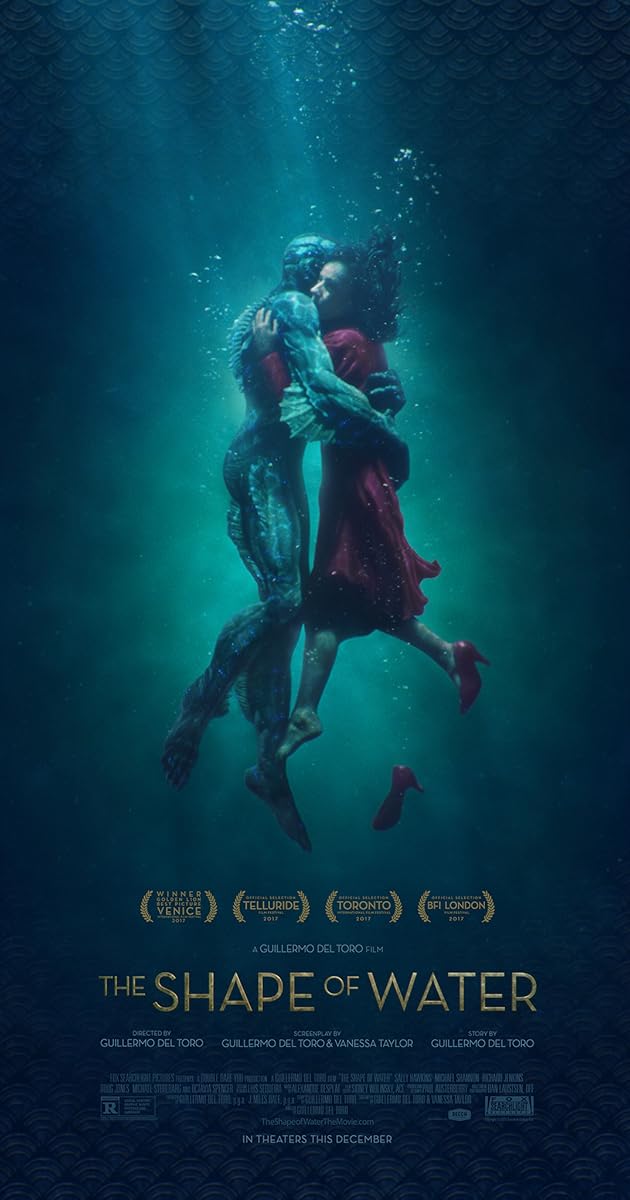Did The Shape of Water Draw Inspiration From "The Little Mermaid?"
A couple of weeks ago, director Guillermo del Toro released his latest masterpiece, The Shape of Water. Though not exactly a princess movie, del Toro tends to draw inspiration from fairy tales and mythology. His 2006 blockbuster Pan's Labyrinth was an "Alice in Wonderland" inspired movie set in the midst of a Spanish war. Like The Shape of Water, it was very much its own story, even though the fairy tale elements were still present. Del Toro is better at using fairy tales as a jumping off point and putting his own spin on his films, which might be one reason that his adaptation of "Pinocchio" got canceled. In the same way that Pan's Labyrinth borrowed elements of "Alice in Wonderland," I think that The Shape of Water borrowed from "The Little Mermaid." Let's take a moment to explore this theory.
To begin, drawing inspiration from a story is very different from being an adaptation. Disney's The Little Mermaid was a direct adaptation of Hans Christian Andersen's tale with a new ending. The Shape of Water is an original tale with some similar elements. It tells the story of a mute woman named Elisa who works as a maid for a government organization during the Cold War. When the organization kidnaps a merman-like creature and decides to kill him to dissect him for science, Elisa makes it her mission to save the creature from such a fate. If I'm being completely honest, the similarities to "The Little Mermaid" are what drew me to this movie in the first place. Having seen it, I found that the similarities are only surface deep, but still worth mentioning. The Shape of Water is a love story, plain and simple, just like "The Little Mermaid." Both stories have mute heroines, even though the mermaid had a voice at the beginning of her story. Also in both, the heroine takes a big risk to rescue her love interest and be a part of his world. The similarities end there, but I still think there are too many to be purely coincidental.
When Moana came out last year, there was a popular theory that it was The Little Mermaid told in reverse. In truth, however, the two stories are very different. Moana is not a love story and does not reference another world in the ocean where human-like creatures exist. The Shape of Water comes much closer to telling the story of "The Little Mermaid" in reverse. Elisa risks her job and later her life to be with the nameless sea creature and explains in a beautiful sign language monologue how she feels closer to him than she does to any human, just as the little mermaid feels closer to the prince than she does to any of the mermen from her own kingdom. Elisa recuses the sea creature from a terrible death on land by returning him to the water just like the little mermaid rescues the prince from drowning by pulling him back to land. I'm not trying to undermine del Toro's genius by pointing out these similarities, but they did help to create a surreal fairy tale environment despite the realistic historical setting.
The Shape of Water begins and ends like a fairy tale, but most of the middle feels grounded in the real world. Just like Pan's Labyrinth, the fairy tale elements give us hope of a better life with the promise that an ordinary girl could secretly be a princess. Elisa was only referred to as a princess once at the beginning of the movie, but it was still enough to solidify the subtle "Little Mermaid" references that were peppered throughout. Some people might be confused that a character who worked as a maid would be referred to as a princess, but those people clearly are not aware of Sara's philosophy in A Little Princess. When the little mermaid became a human, no one on land knew she was a princess nor did they treat her as such except for the prince. Elisa was an orphan who was found by a river, which creates the implication that she could have been some sort of aquatic royalty, but no one in her world respected her as such with the exception of her aquatic lover.
Overall, The Shape of Water does tell an original story despite drawing elements from many other tales. There's no way of knowing for certain if the references to "The Little Mermaid" were intentional, but I would like to think they were. The subtle references add a depth to the movie for me that would not have otherwise been present. Though I did not enjoy it quite as much as Pan's Labyrinth, it was still an entertaining film. I appreciated that it had a realistic heroine who speaks using sign language and gives visibility to the disabled community, reminding us that anyone can be a princess.












Comments
Sally was an otherworldly creature and felt kinship with "the asset." She's heroic and saves her love.